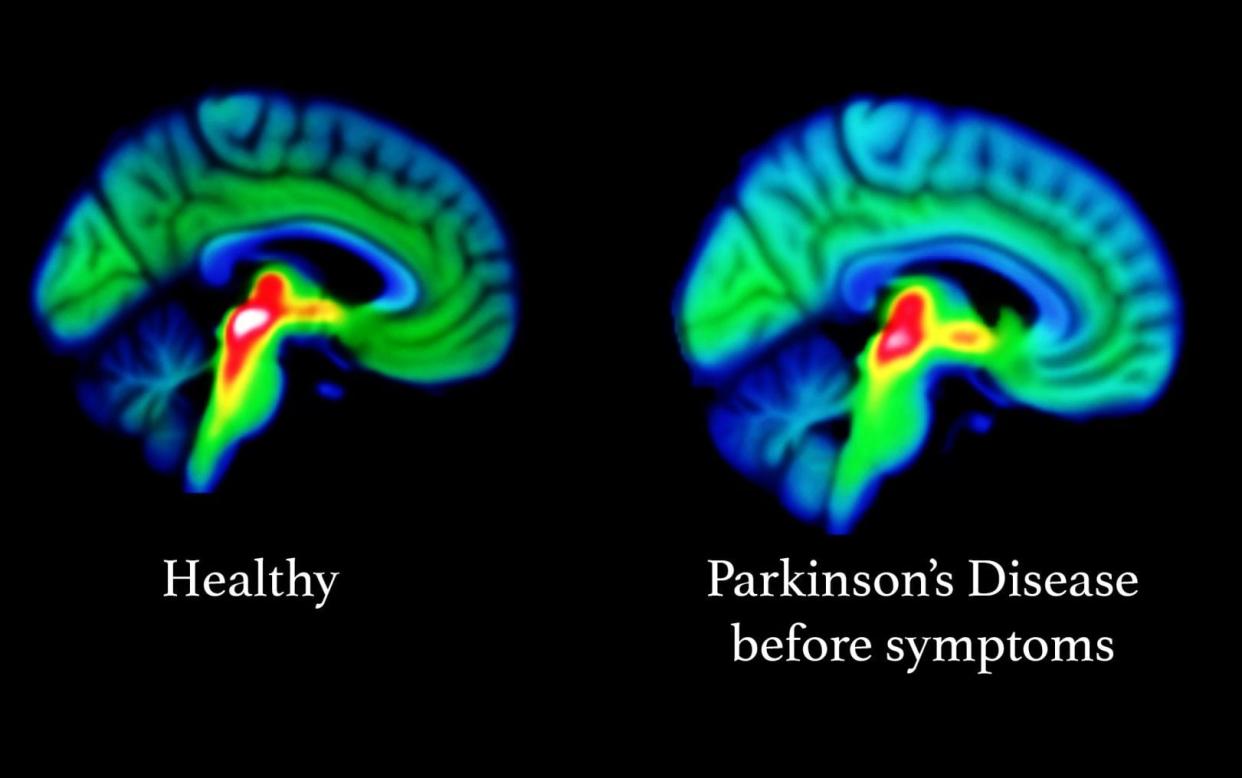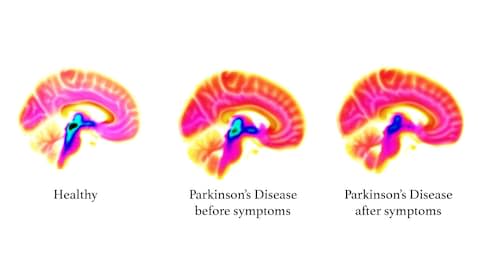Parkinson’s disease spotted in brain more than a decade before symptoms emerge

Parkinson’s disease could be spotted in the brain more than a decade before symptoms emerge, scientists have discovered, raising hopes that early treatment could prevent the condition ever taking hold.
Researchers from King’s College London studied the brains of people living in the northern Peloponnese of Greece who suffer from a rare genetic mutation that makes Parkinson’s almost inevitable.
Most will develop the disease in their 40s but scientists found that by their 20s and 30s they had already lost of up to 34 per cent of the brain cells that process the hormone serotonin.
The damage had occurred even before symptoms developed, offering an early warning sign of the approaching disease.
Although the loss of the hormone dopamine in the brain is responsible for movement problems in Parkinson’s, scientists now believe that decreasing levels of the mood-boosting hormone serotonin also plays a role.
Chief investigator Professor Marios Politis, Lily Safra Professor of Neurology & Neuroimaging at King’s said: “Parkinson’s disease has traditionally been thought of as occurring due to damage in the dopamine system, but we show that changes to the serotonin system come first, occurring many years before patients begin to show symptoms.
“Our results suggest that early detection of changes in the serotonin system could open doors to the development of new therapies to slow, and ultimately prevent, progression of Parkinson’s disease.”

Around 148,000 people are living with Parkinson’s in Britain and there are currently no drugs to prevent the progression of the disease although some experimental therapies are showing promise. The main symptoms of the condition are tremor, slowness of movement and rigidity
Currently doctors use clinical symptoms such as loss of sense of smell, constipation, depression and sleep disturbance as the first clues that Parkinson’s may be developing.
But scientists are hopeful that brain scans of serotonin levels could help identify those at greatest risk far earlier.
The level of serotonin brain cell loss was also found to be linked to the progression of the disease.
First author Dr Heather Wilson said: "We found that serotonin function was an excellent marker for how advanced Parkinson’s disease has become.
“Crucially, we found detectable changes to the serotonin system among patients who were not yet diagnosed.
“Therefore, brain imaging of the serotonin system could become a valuable tool to detect individuals at risk for Parkinson’s disease, monitor their progression and help with the development of new treatments.”
Commenting on the research Dr Beckie Port, Research Manager at Parkinson’s UK, said: “Detecting changes that are happening in the brain in these early stages is a crucial gap in Parkinson’s research at the moment.
"Picking up on the condition earlier and being able to monitor its progression would aid the discovery of new and better treatments that could slow the loss of brain cells in Parkinson’s.”
Tom Foltynie, Professor of Neurology, UCL, added: “This is a fascinating finding exploiting the fact that these individuals have either developed or are in a very high-risk group of developing Parkinson’s.
"It is tempting to speculate that the early loss of serotonergic neurons demonstrated in this study relates to some of the early features of PD particularly the sleep disturbances or mood disorder, but this needs to be more definitively established.
"How the more widespread loss of serotonergic neurons demonstrated later in the course of the illness relates to the clinical symptoms experienced by these patients also needs further study."
The research was published in The Lancet Neurology.

 Yahoo News
Yahoo News 
